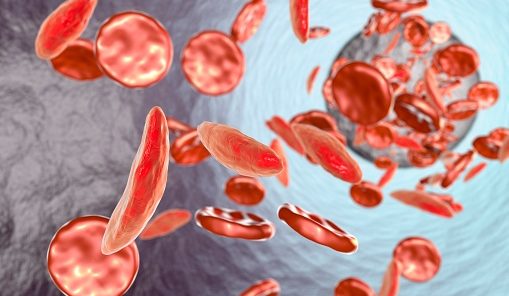A study published in The Lancet assessed the addition of pembrolizumab to first-line chemotherapy in patients with previously untreated locally recurrent inoperable or metastatic triple-negative breast cancer and found that this combination improved progression-free survival (PFS).
The randomized, placebo-controlled, double-blind, phase III KEYNOTE-355 clinical trial was conducted at 209 sites in 29 countries between January 9, 2017, and June 12, 2018. The study randomized 847 adult patients with untreated locally recurrent inoperable or metastatic triple-negative breast cancer 2:1 to receive pembrolizumab 200 mg every three weeks plus chemotherapy (nab-paclitaxel, paclitaxel, or gemcitabine/carboplatin; n=566) or placebo plus chemotherapy (n=281). Patients were stratified based on type of on-study chemotherapy (taxane or gemcitabine/carboplatin), PD-L1 expression at baseline (combined positive score [CPS] ≥1 or <1), and previous treatment with the same class of chemotherapy in the neoadjuvant or adjuvant setting (yes or no).
At the second interim analysis (December 11, 2019), median follow-up was 25.9 months (range, 22.8-29.9 months) in the pembrolizumab plus chemotherapy group and 26.3 months (range, 22.7-29.7 months) in the placebo plus chemotherapy group.
Among patients with CPS of ≥10, median PFS (primary endpoint) was 9.7 months in the pembrolizumab plus chemotherapy cohort versus 5.6 months in the placebo plus chemotherapy group (hazard ratio [HR] for progression or death, 0.65; 95% confidence interval [CI], 0.49-0.86; P=0.0012), thus meeting the study’s primary endpoint.
Median PFS was 7.6 months and 5.6 months, respectively (HR, 0.74; 95% CI, 0.61-0.90; P=0.0014) among patients with CPS of ≥1 and 7.5 months and 5.6 months, respectively (HR, 0.82; 95% CI, 0.69-0.97) among the intention-to-treat population. Pembrolizumab effect increased with PD-L1 enrichment.
Grade 3-5 treatment-related adverse events occurred in 68% of the pembrolizumab plus chemotherapy group and 67% of the placebo plus chemotherapy group. The death rates in both groups were <1% and 0%, respectively.
“These findings suggest a role for the addition of pembrolizumab to standard chemotherapy for the first-line treatment of metastatic triple-negative breast cancer,” the researchers concluded.
The study is ongoing to assess overall survival outcomes.
Link: https://www.thelancet.com/journals/lancet/article/PIIS0140-6736(20)32531-9/fulltext









